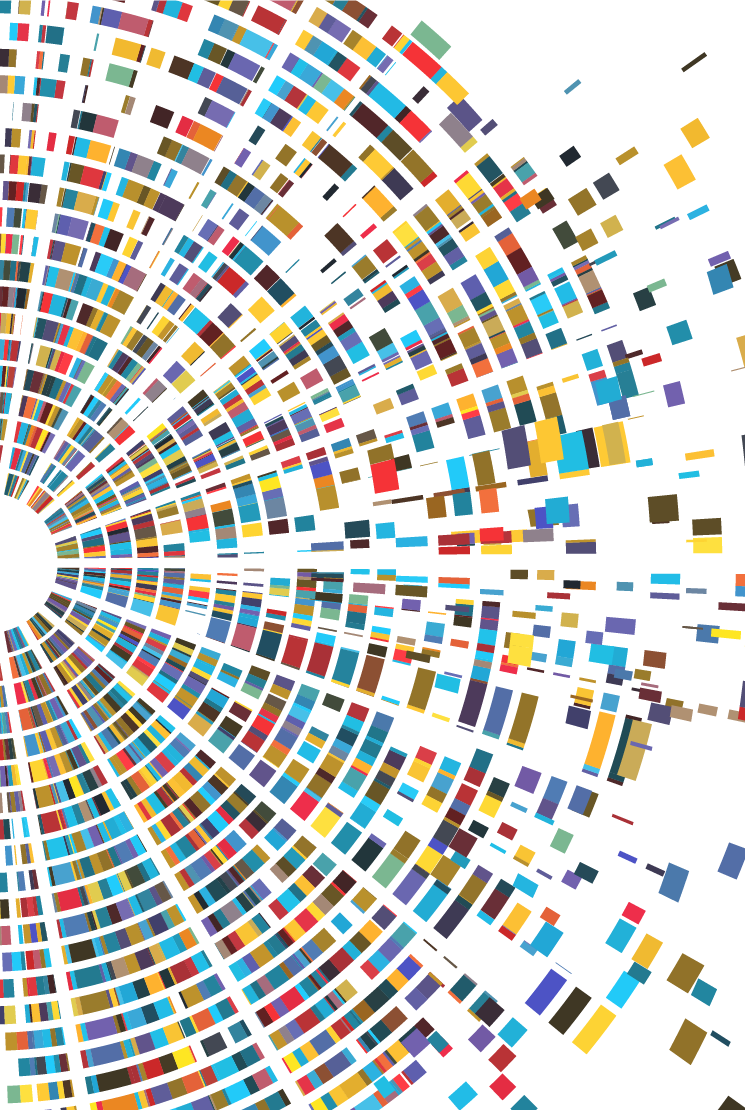
Emmy Network Foundation (under the aegis of Fondation de Luxembourg) works together with the Universities of Oxford (UK) and Turku (Finland) to support and direct a growing global network of exceptional researcher fellows from a diverse set of disciplines ranging from mathematics and physics to biology and economics. Emmy Network researchers work to improve our understanding of social, cognitive and conceptual systems.
By combining, and making publicly available, Emmy Network Fellows’ novel research insights in artificial intelligence and social network dynamics has allowed organizations to develop and extend impact. To date the Fellows have helped President Martti Ahtisaari’s Crisis Management Initiative (CMI) to improve its understanding of conflicts it is mediating and have worked with the City of Turku, Finland, to improve its traffic planning and data management.
To foster exchange of ideas and spread of insights as well as to encourage serendipitous encounters strengthening and growing the network, several gatherings are organized throughout the year bringing together Emmy Network Fellows as well as members of the broader community.
The first gathering, focused on conceptual systems, was held in May 2019 bringing together a distinguished, global group of mathematicians and scientist and has already resulted in a number of new active collaborations on improving our understanding of foundations of mathematics and the natural sciences.

At some point, somewhere, self-replicating biological life was born. Biological systems continued to evolve, giving rise to complex organs such as the human brain. Overtime, biological agents evolved into societies, bringing about artificial and collective forms of cognition. Many important open questions remain. How did self-replicating biological life begin and evolve? How did biological systems give rise to organs? How did biologically-based cognition emerge, and what is it, really? In turn, how did collective and artificial forms of cognition arise and how did they impact the structure and function of human societies?
As resources become scarce and the vast majority of the global population moves to cities, societies need to become more collaborative. How do we develop better innovations, that more effectively utilize our limited resources? How do we learn to avoid and resolve conflicts? How do we create efficient, universally accessible educational solutions? Ultimately, we need to become better at answering questions like the ones we are asking here in order to live harmonious, productive, and happy lives.
Understanding the evolution, function, and interdependencies of biological, cognitive, and social systems is fundamental to understanding who we are and how to address the challenges we face.
Formulating these questions precisely and in a manner amenable to quantitative study is an important step in understanding our place in the universe, who we are, and how to face the challenges of today and tomorrow. Such an endeavour requires mathematical and computational frameworks general enough to encompass this broad range of fields, yet detailed enough to be able to capture and describe the subtle features of specific problems.
Network science provides one such approach, where large systems and their behaviors are studied as networks of interacting parts, components, or subsystems. Applied work consists of trying to understand how specific systems can be described in terms amenable to mathematical and computational treatment without abandoning salient features of their behavior. Fundamental research work focuses on developing novel descriptive frameworks and studying their various structural properties. At its most ambitious, network science attempts to provide a platform for investigating the foundations of theories of nature and of mathematics. Fundamentally, network research is interdisciplinary and collaborative.




Joseph was born in Jerusalem and grew up in Israel, Africa and Paris. He received his Dphil. from University of Oxford and Post Doc from University of Stanford. After 36 years of professorship at the University of California, Joseph started as a professor at the University of Turku in 2013. Joseph joined Emmy Network in 2018. His research focuses on the place of infinity in understanding Nature.

Mark received a joint Honours Degree in Mathematics and Computer Science from McGill University in 2005, and went on to receive a Ph.D. in Computer Science from Concordia University in 2015. His research interests range from Neural Networks and Dynamical Systems to Pseudorandom Number Generation and the Prediction of Epileptic Seizures. Mark joined the Emmy Network in 2016 and has been instrumental in directing its research agenda. He has served as a guide on how theoretical results may be applied to real-world problems.

Andreas received his PhD in Pure Mathematics from the University of Cambridge in 2010. He has a wide range of experience in teaching, edtech, NGO work (UNICEF), as well as mathematical research at Caltech, Bordeaux, Paris, Oslo, Bonn, Stockholm and now the University of Turku. His current research interests include L-functions and Zeta Functions, Cohomology Theories, Grothendieck Rings of Tannakian Categories (i.e. Universal Symmetry Representations), but also new conceptual frameworks for Metamathematical Analysis, with applications in Math Education, Philosophy and new forms of Mathematical Artificial Intelligence. Andreas joined Emmy Network in 2018.

Guillermo completed his PhD in Physics at Universitat de Barcelona in 2018. His current research interests include the study of the structure of Real Complex Networks from a geometric perspective, as well as the dynamics of Interconnected Quantum Systems forming Complex Topologies. In a recent publication, he defined a geometric renormalization group for complex networks that reveals that real networks are self-similar. This symmetry was exploited to construct smaller-scale replicas of real systems for efficient dynamics simulation and to propose a multiscale navigation protocol with higher efficiency than its single-scale counterpart. Guillermo joined Emmy Network in 2018.

Toni received his M.Sc. from the University of Turku in 2017, majoring in the field of Mathematics. During his studies he has amassed an extensive knowledge in Formal Language and Automata Theory, Cellular Automata Theory, and Graph Theory. He has also studied a plethora of other subfields of Mathematics, and has minored in Computer Science and Statistics. Toni joined Emmy Network in 2017 to continue working on his topics of interest and start his PhD studies at the University of Turku.

Harto obtained his Master’s degree in Mathematics from the University of Turku in 2016 after engaging in a wide spectrum of courses in Chemistry, Physics, Computer Science and Mathematics. Following his M.Sc., Harto prepared his Licentiate thesis on a subject that intersected both Mathematics and Philosophy, on a topic dealing with highly abstract notions within the fundamentals of mathematics. Before joining Emmy Network in 2017, he had just started his Ph.D. thesis in Stochastic Modelling, Mathematical Finance, Probability Theory and Partial Differential Equations at the University of Turku. Harto’s enthusiasm in all things mathematical is demonstrated in his strong knowledge in the many different branches of the field, from the entirely theoretical to the immediately practical.

Anna Pursiheimo graduated from the University of Turku, obtaining an M.Sc., where she majored in Applied Mathematics with an orientation in Actuarial Mathematics. During her time in the insurance industry, she specialized in both personal and life insurance. After this period, she went to work in the IT field as a consultant for some of Finland’s largest enterprises, including Nokia and Outokumpu. In addition to her actuarial sciences background, Anna’s academic focus and ongoing research on complex systems, with a special interest in the evolution of cooperation, has made her an ideal fit for the networks' research efforts. Anna joined Emmy Network in 2017.

Joona has completed his M. Sc. degree from Aalto University in 2013, where he majored in Cognitive Technology and product development. Joona is currently finalizing his Ph.D. in Computer Science on proliferating innovations from fundamental research and has also been working on related projects for the past decade, with for example CERN, IBM, Nokia and Elisa. Joona joined Emmy Network in 2017.